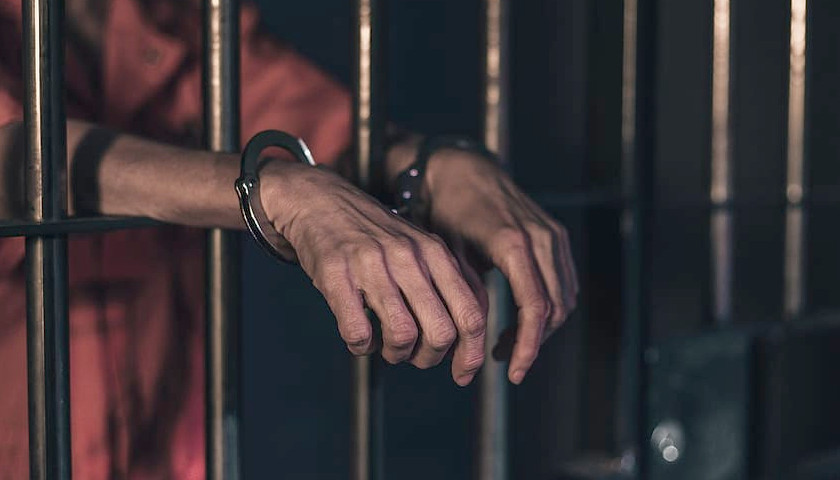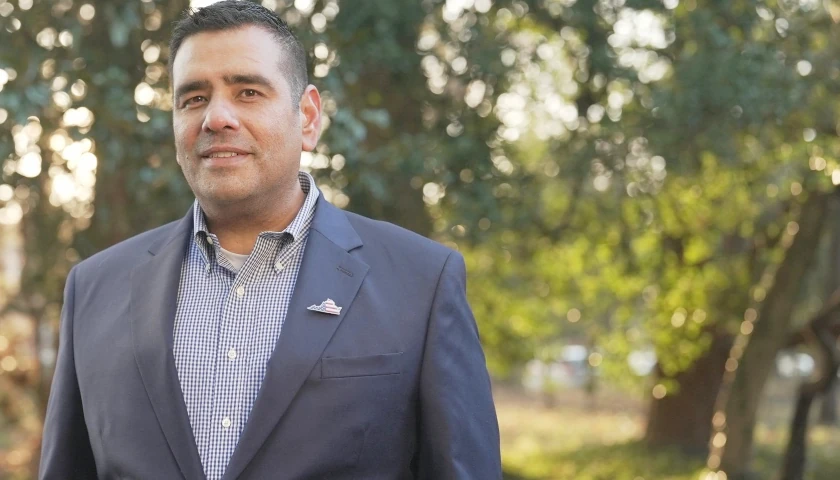The Senate and the House of Delegates face a disagreement over constitutional amendments to end felon disenfranchisement. SJ 272, introduced by Senator Mamie Locke (D-Hampton) and HJ 555, introduced by House Majority Leader Charniele Herring (D-Alexandria) both effectively restore felon voting rights after the term of imprisonment is completed. However, the two bills feature different language, and on Wednesday, the Senate shot down an attempt by the House to change SJ 272 to match HJ 555. Now, the two chambers will attempt to draft a compromise bill in conference.
HJ 555 would change the Virginia Constitution to say, “No person who has been convicted of a felony shall be qualified to vote […] until completion of his sentence of imprisonment, at which time, without further action required of him, his political rights, including the right to vote, shall be restored.”
However, SJ 272, as passed by the Senate, would change the law to say, “Every person who meets these qualifications shall have the fundamental right to vote in the Commonwealth, and such right shall not be abridged by law, except that no person who has been convicted of a felony shall be entitled to vote during any period of imprisonment[.]”
SJ 272 creates a fundamental voting right that is only removed while a felon is imprisoned, while HJ 555 works more closely with existing Constitutional language to automatically restore felon voting rights.
“Automatic restoration of rights is not racial justice,” Locke said in committee. “Restoration does not repeal the language or address the racist intent of the felony disenfranchisement provision currently enshrined in the Virginia Constitution.”
Locke added, “The question we should be asking ourselves is, ‘Why are we talking about giving back something that should never have been taken away in the first place?'”
Each bill passed in its own chamber and was sent to the other chamber for consideration.
However, the House Privileges and Elections Committee changed SJ 272 to be identical to HJ 555. The House passed that version on Monday, prompting Locke on Wednesday to ask the Senate to vote against the House’s version of SJ 272 to send the bill into conference. The Senate has not yet voted on HJ 555.
Once both chambers agree on and pass a bill, the bill can be reintroduced in next year’s General Assembly. If it passes, the constitutional amendment goes to a ballot for approval by voters.
In the House committee on February 10, Locke said disenfranchising felons is a vestige of Jim Crow legislation meant to disenfranchise minorities.
“Felons are the only class of citizens still disenfranchised from the vote,” Locke said. “We have convinced ourselves that this is normal and somehow not racially defined. We are wrong on both counts.”
Locke said that due to higher incarceration of Black people, they are disproportionately disenfranchised. “The Jim Crow era legislation is working exactly as it was intended to work,” she continued.
Currently, felons in Virginia must apply to have their voting rights restored after completing their sentences, and after vetting by state departments, the governor must individually sign off on the restoration, according to a Secretary of the Commonwealth information page. Virginia is one of only 11 states where felon voting rights are not automatically restored, according to the National Conference of State Legislatures.
The bills have received minimal support from Republicans. In January, Heritage Foundation Senior Legal Fellow Hans von Spakovsky told The Virginia Star, “In an ordered society culture, which is what we live in, we are bound together by a set of laws and rules that we as a society have put together through our democratic process that rule how we conduct ourselves. When you engage in a serious crime, you are basically saying that you are ignoring the laws and rules.”
He argued, “When we go to vote we are picking not only the representatives and city council members who are responsible for putting those laws in place, we’re also electing the prosecutors who are responsible for enforcing those laws.”
– – –
Eric Burk is a reporter at The Virginia Star and the Star News Digital Network. Email tips to [email protected].





“while imprisoned” – Do either of these bills stipulate that the prisoner must complete his/her FULL Court Sentence? What happens if the Virginia Parole Board lets someone out of prison? I don’t understand what is wrong with our current law: letting the felon, after release, make a request to the Governor for restoration of voting rights!